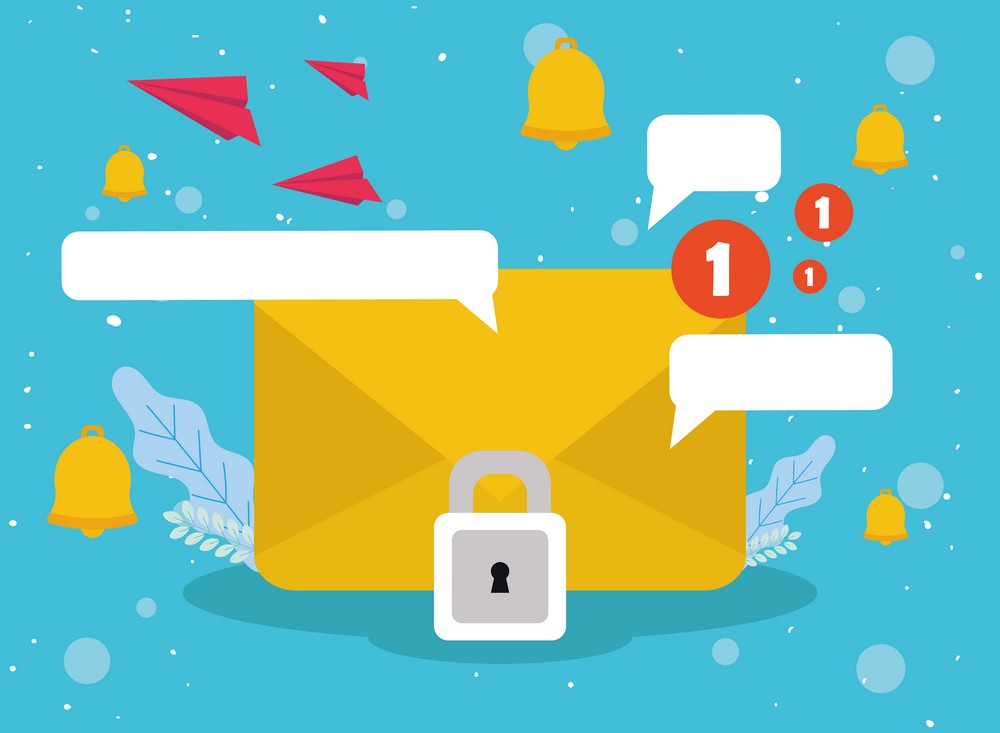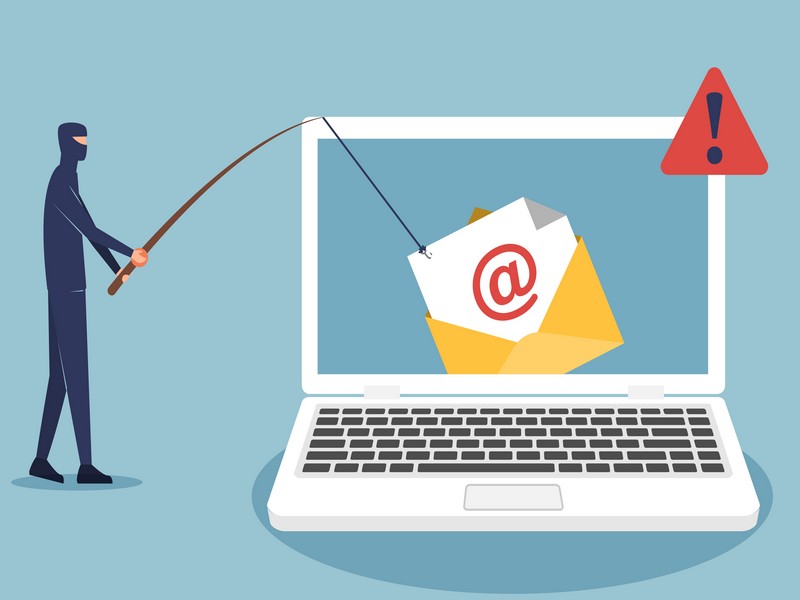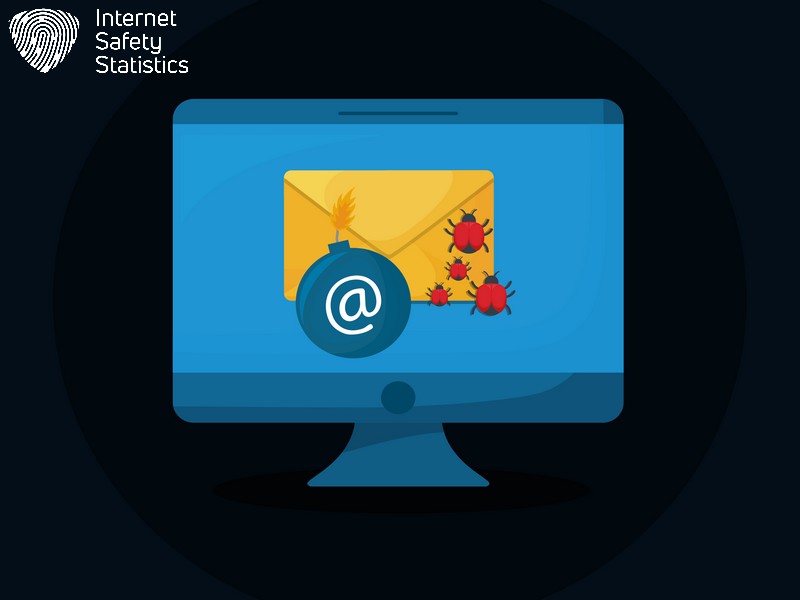
Our email inboxes hold a wealth of sensitive information, from personal communications to confidential business documents. However, traditional email communication often lacks robust security measures. Unencrypted emails travel across networks in plain text, vulnerable to interception by unauthorised individuals or even prying eyes on shared Wi-Fi connections. This vulnerability exposes our sensitive data to potential breaches.
Fortunately, email encryption has emerged as a powerful tool for safeguarding your digital correspondence. When you encrypt your emails, you scramble the content of your emails using complex algorithms, transforming them into an unreadable format. This process requires a decryption key, like a password, to unlock the message and revert it to its original form. Only authorised recipients possessing the correct key can access the email’s content.
This guide serves as a roadmap for beginners navigating the world of email encryption. We’ll explore the different types of email encryption and explain how they work. We’ll also delve into the benefits of using encrypted email, including enhanced privacy, improved security for confidential information, and peace of mind for both senders and recipients.
Additionally, the guide will provide step-by-step instructions on enabling encryption for popular email providers, empowering you to take control of your email security. Implementing these measures can transform your inbox into a secure vault, ensuring your sensitive communications remain confidential.
Discover straightforward steps to shield your digital letters and stay safe online. It’s time to lock down your communications – let’s get started!
Understanding Email Encryption
Email encryption is a method of securing the content of your emails through the use of complex algorithms. It works by converting the plain text of your email into ciphertext, making it unreadable to anyone without the proper decryption key.
What is Email Encryption?
Imagine sending a letter that only the intended recipient can read, no matter how many hands it passes through. That’s what email encryption does for your digital messages. It scrambles the content of your emails so that anyone without the right ‘key’ cannot understand them. This technology protects sensitive information from hackers and snoopers who might intercept your communications.
Email encryption transforms readable text into encoded data using complex algorithms. Only those with an authorised decryption key can unlock and read the original message. This ensures that personal details, confidential business plans, or private conversations stay secure between you and your recipients. Encrypting emails gives peace of mind by keeping prying eyes out of private affairs, making it an essential tool in today’s world, where online communication dominates personal and professional interactions.
How Does it Work?
After understanding email encryption, it’s important to grasp how it works. Email encryption functions by encoding the content of an email, rendering it unreadable to anyone without the decryption key. When an email is sent using encryption, it undergoes a process where the original message is converted into ciphertext, making it secure from unauthorised access during transit and when stored on servers or devices.
This means that even if hackers intercept the emails, they won’t be able to read the information without access to the decryption key. Encryption protects sensitive data, such as credit card details, during online transactions and ensures that only intended recipients can decipher and read the content.
Methods of Email Encryption

Email encryption can be achieved through various methods such as SSL, TLS, AES, PGP, and S/MIME. Each method offers different security and encryption techniques to protect your emails from unauthorised access.
Secure Sockets Layer (SSL)
Secure Sockets Layer (SSL) encrypts data transferred between a user’s browser and a website, ensuring that sensitive information, such as credit card details, is protected during online transactions. SSL is important for securing email communication, especially when sharing confidential information like financial or personal details. It provides an added layer of security to keep email contents safe from unauthorized access or interception, making it crucial for safeguarding sensitive data in personal and business email correspondence.
Implementing SSL encryption helps to ensure the confidentiality, integrity, and privacy of emails, offering peace of mind that communications are secure from prying eyes. For individuals managing daily emails or businesses exchanging vital information with clients and partners, SSL encryption is an effective way to protect email privacy and security while preventing cyber attacks on the transmission of confidential content.
Transport Layer Security (TLS)
Transport Layer Security (TLS) is crucial for securing email communication by encrypting data transmitted between mail servers. It ensures that sensitive information, such as credit card details or personal messages, remains confidential and protected from unauthorised access when sending emails. By implementing TLS, you can fortify your email communication and prevent potential cyber threats from intercepting or tampering with your messages.
Implementing TLS in email communication provides an additional layer of security to safeguard sensitive information and maintain the privacy of digital conversations. This encryption protocol plays a vital role in ensuring that the content of emails remains secure during transmission and reception, offering peace of mind for both personal and business communications.
Advanced Encryption Standard (AES)
After understanding how Transport Layer Security (TLS) works to encrypt your emails, it’s crucial to delve into the significance of the Advanced Encryption Standard (AES). AES is a widely used encryption method that ensures top-notch security for sensitive data.
This encryption standard plays a vital role in safeguarding information such as credit card details during online transactions. It provides robust protection against unauthorised access or interception of your email contents. With AES, you can rest assured that your communication remains confidential, ensuring the privacy and security of your digital correspondence.
Utilising AES for email encryption is an effective way to fortify the confidentiality, integrity, and privacy of sensitive information. It protects personal data and contributes significantly to overall cybersecurity measures.
Pretty Good Privacy (PGP)
After learning about the robust security provided by Advanced Encryption Standard (AES), it’s important to consider Pretty Good Privacy (PGP) as another effective method of email encryption. PGP is a popular encryption programme that provides cryptographic privacy and authentication for data communication. It combines symmetric-key and public-key cryptography, ensuring that only the intended recipient can read encrypted messages.
PGP is widely used for securing emails and files, making it an essential tool in safeguarding sensitive information from unauthorised access or interception.
Secure/Multipurpose Internet Mail Extensions (S/MIME)
Secure/Multipurpose Internet Mail Extensions (S/MIME) is a widely used method for securing email communication. It provides end-to-end encryption, ensuring only the intended recipient can read the message.
S/MIME uses digital signatures to verify the sender’s identity and ensure the integrity of the message content. This technique offers an effective way to protect sensitive information and maintain digital privacy when sending emails.
S/MIME plays a crucial role in safeguarding email confidentiality and maintaining information security. Incorporating S/MIME into your email communication can enhance your data security while minimising the risk of unauthorised access or interception.
Why You Should Encrypt Your Emails
Encrypting your emails can protect sensitive information, secure communication with clients and partners, and prevent cyber attacks. It’s an essential step in ensuring the confidentiality of your messages.
Protect Sensitive Information
Email encryption is crucial for safeguarding sensitive information from unauthorised access. By using encryption software, you can ensure that confidential communication remains secure and protected from prying eyes.
This method applies cryptography techniques to encode the contents of your emails, providing an added layer of security and peace of mind when exchanging sensitive data. Whether it’s personal correspondence or business-related communication, email protection through encryption is essential for maintaining the confidentiality and integrity of your messages.
In addition to securing personal data, encryption is vital in protecting financial information, such as credit card details, during online transactions. For parents, office workers, and internet users alike, understanding the importance of encrypting emails is key to ensuring the privacy and security of digital communication in today’s interconnected world.
Secure Communication with Clients/Partners
Encrypting your emails ensures secure messaging with clients and partners, safeguarding sensitive information from unauthorised access. It adds an extra layer of protection to keep email contents from prying eyes by encoding them, ensuring data confidentiality, integrity, and privacy. Encryption is crucial for protecting sensitive information from being read by unauthorised individuals or intercepted during transmission.
Utilising encryption-based products for securing emails and files provides a reliable way to ensure the privacy and security of email communication. By adopting email encryption methods as part of your communication strategy, you can securely establish trust with clients and partners when securely sharing confidential information.
Employing robust encryption practices plays a vital role in maintaining secure communication channels with clients/partners while upholding the integrity of your business operations.
Avoid Cyber Attacks
Encryption is essential to prevent cyber attacks and protect sensitive information. It safeguards email contents from unauthorised access, ensuring privacy and security for personal and business communication. Encryption acts as a defence mechanism against potential threats that seek to compromise the confidentiality and integrity of sensitive data.
Using encryption methods such as Secure Sockets Layer (SSL), Transport Layer Security (TLS), Advanced Encryption Standard (AES), Pretty Good Privacy (PGP), or Secure/Multipurpose Internet Mail Extensions (S/MIME) can help shield emails from malicious activities.
How to Get Email Encryption

To get email encryption, consider using email encryption services or tools like Mailvelope for added security and protection. These services and tools can help encrypt your emails and protect your communications from prying eyes.
Using Email Encryption Services
Email encryption services are essential for securing sensitive information in emails. These services provide an added layer of protection by encoding the contents of your emails, ensuring that they remain private and secure from unauthorised access. It is crucial for personal and business use, as it helps safeguard confidential data such as financial details or personal communications.
When using email encryption services, you can choose from various products offering different levels of security, including end-to-end encryption and data protection during transmission. By implementing these services, internet users can enhance the confidentiality and integrity of their email communication while minimising the risk of cyber attacks or unauthorised interception.
Using Mailvelope
Mailvelope is an easy-to-use browser extension that provides end-to-end encryption for your email communication. It allows you to encrypt and decrypt your emails directly within your web-based email service, ensuring that only the intended recipient can read the contents of your message.
With Mailvelope, you can generate secure keys to protect your emails from unauthorised access. Additionally, it supports popular webmail services such as Gmail, Yahoo, and Outlook, making it a convenient option for securing your online communication.
Mailvelope simplifies the process of implementing PGP encryption, allowing users to protect their sensitive information with just a few clicks. This tool enables personal and business users to maintain the confidentiality and integrity of their email content without extensive technical knowledge.
Best Practices for Email Encryption
Keep your browser and email account secure using strong passwords and two-factor authentication. Be cautious of key servers when exchanging keys for encryption and decryption. Also, keep endpoint data protected to prevent unauthorised access to your encrypted emails.
Keep Your Browser and Email Account Secure
Use strong and unique passwords for each account to keep your browser and email account secure. Regularly update your encryption methods to protect sensitive information from unauthorised access or interception.
Be cautious of key servers when using encryption services to protect data from people you don’t want to see it. Endpoint data should always be protected as a fundamental tool for ensuring the confidentiality, integrity, and privacy of sensitive information.
Be Cautious of Key Servers
To protect your email encryption keys, exercise caution when using key servers. These servers store public encryption keys and can pose security risks if not properly managed. Ensure that your key server is reputable and has a track record of secure operations. Regularly update your encryption keys and consider revoking unused or compromised ones to bolster your email security.
Keep in mind that unauthorised access to your encryption keys could compromise the confidentiality of your emails. Always verify the legitimacy of key servers before utilising their services, and consider consulting with IT professionals for guidance on choosing reliable key servers for encrypting your emails effectively.
Keep Endpoint Data Protected
Protect your endpoint data by implementing strong encryption methods. This ensures that sensitive information stored on devices such as laptops, tablets, or smartphones remains secure from unauthorised access.
Regularly updating your encryption methods adds extra protection to prevent potential cyber-attacks and safeguard confidential information. Additionally, keeping your browser and email account secure helps maintain your data’s integrity. By securing endpoint data with robust encryption techniques, you can mitigate the risk of unauthorised access and enhance the privacy and security of your digital communication.
Regularly Update Your Encryption Methods
To maintain email security, regularly update your encryption methods. This ensures that you use the latest and most robust security protocols to protect sensitive information. By updating your encryption methods, you stay ahead of potential cyber threats and vulnerabilities, safeguarding personal and professional communication.
Regularly updating your encryption methods is vital for staying one step ahead of potential cyber-attacks. Keeping up-to-date with the latest security measures helps ensure the privacy and integrity of your emails against evolving threats.
In conclusion, email encryption is vital for safeguarding sensitive information from unauthorised access. It provides an added layer of security to ensure the confidentiality and privacy of your emails. Encryption methods such as SSL, TLS, AES, PGP, or S/MIME can protect your communication with clients and partners while avoiding potential cyber-attacks. Implementing best practices like keeping your browser and email account secure will further enhance the effectiveness of email encryption in securing your digital communications.
FAQs
1. What is email encryption?
Email encryption is a security method that scrambles emails to keep them safe from hackers and unauthorised readers.
2. How does encrypting emails protect me?
When you use encryption, it turns the information in your emails into a secret code. Only people with the correct key can decode and read these encrypted messages.
3. Can I encrypt emails myself as a beginner?
Yes, beginners can easily secure their emails using simple software or built-in features provided by many email services for encryption.
4. Do the sender and recipient need encryption set up?
For maximum security when using email encryption, both sending and receiving parties should have an encryption setup to send and open secured messages properly.
